The most extreme weather events this year
Thousands have been killed in fires and floods across the world
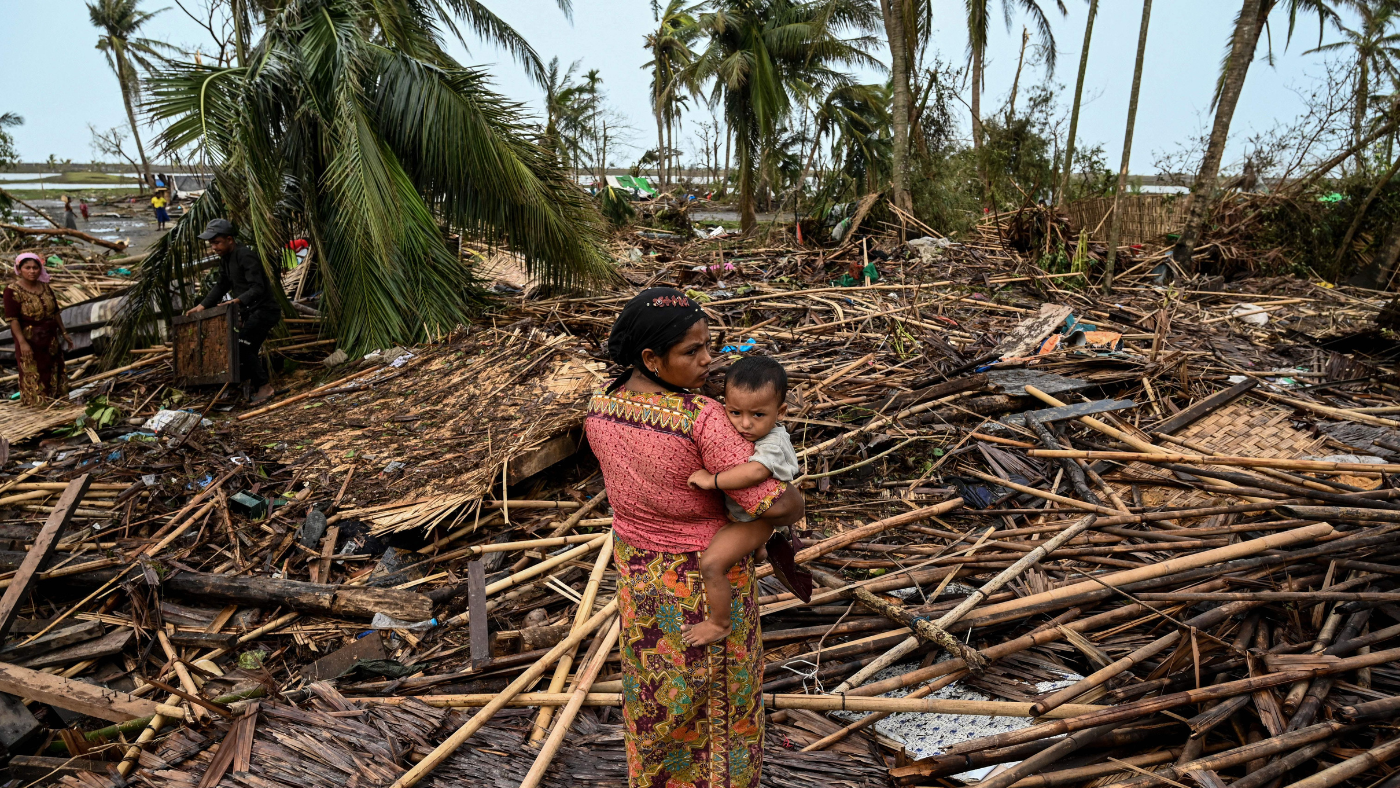
- Freezing in Afghanistan
- Floods in California
- Warm winter in Europe
- Cyclone Freddy
- Floods and landslides in Brazil
- Monsoon in Malaysia
- Cyclone Mocha in Myanmar
- Wildfires in Canada
- South Korea floods
- Heatwave in the US
- Europe's heatwave
- Floods in China
- Fires in Hawaii
- Cyclone in Brazil
- Floods in Libya
A free daily email with the biggest news stories of the day – and the best features from TheWeek.com
You are now subscribed
Your newsletter sign-up was successful
Wildfires, floods and heatwaves have continued to make headlines as communities across the world have had their homes and lives threatened by deadly weather conditions.
This year already "seems destined to be remembered as the year that extreme weather events left the Northern Hemisphere reeling", said National Geographic. And as spring begins in the southern hemisphere, in some South American countries "it felt like the peak of summer", said CNN, as temperatures surpassed 40C.

Sign up for The Week's Free Newsletters
From our daily WeekDay news briefing to an award-winning Food & Drink email, get the best of The Week delivered directly to your inbox.
From our daily WeekDay news briefing to an award-winning Food & Drink email, get the best of The Week delivered directly to your inbox.
Scientists from the Intergovernmental Panel on Climate Change (IPCC) issued a “final warning” on the climate crisis in a report earlier this year, and called for immediate action to limit carbon emissions.
The world is “up the proverbial creek”, said The Quint, but the IPCC report made clear that “we still have a paddle”. Action on climate change is no longer “a luxury but a must”, said Professor Petteri Taalas, secretary-general of the World Meteorological Organization.
Here are some of the extreme weather events the world has experienced in 2023.
Freezing in Afghanistan
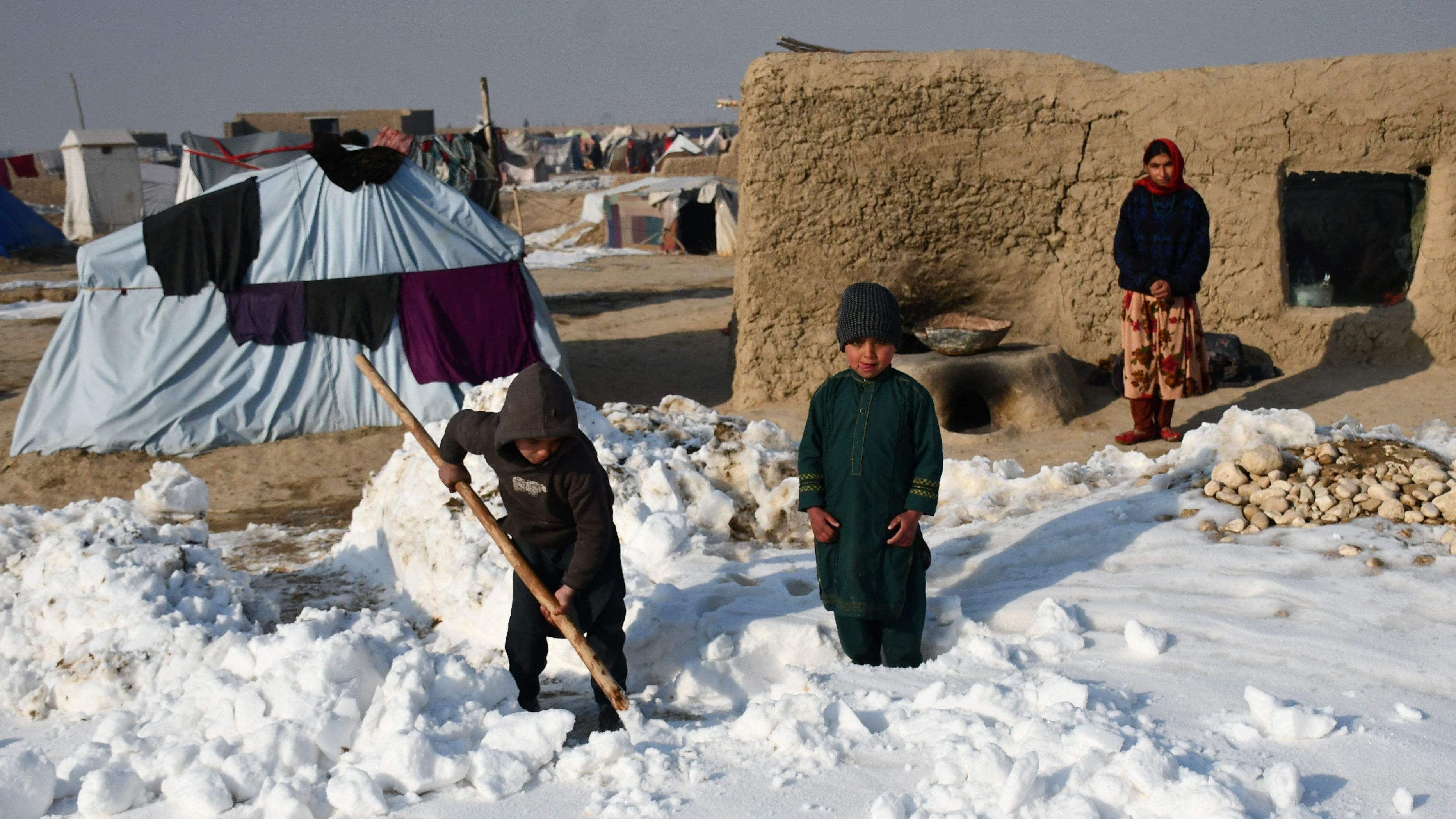
In January, Afghanistan saw temperatures plunge to -28C, well below average for the time of year and resulting in the deaths of 78 people and 77,000 livestock, according to CNN.
A free daily email with the biggest news stories of the day – and the best features from TheWeek.com
The sudden drop in temperature was attributed to polar vortex disruptions, said Al Jazeera, and "compounded the misery of Afghans", who are already "suffering from an unprecedented humanitarian crisis".
Floods in California
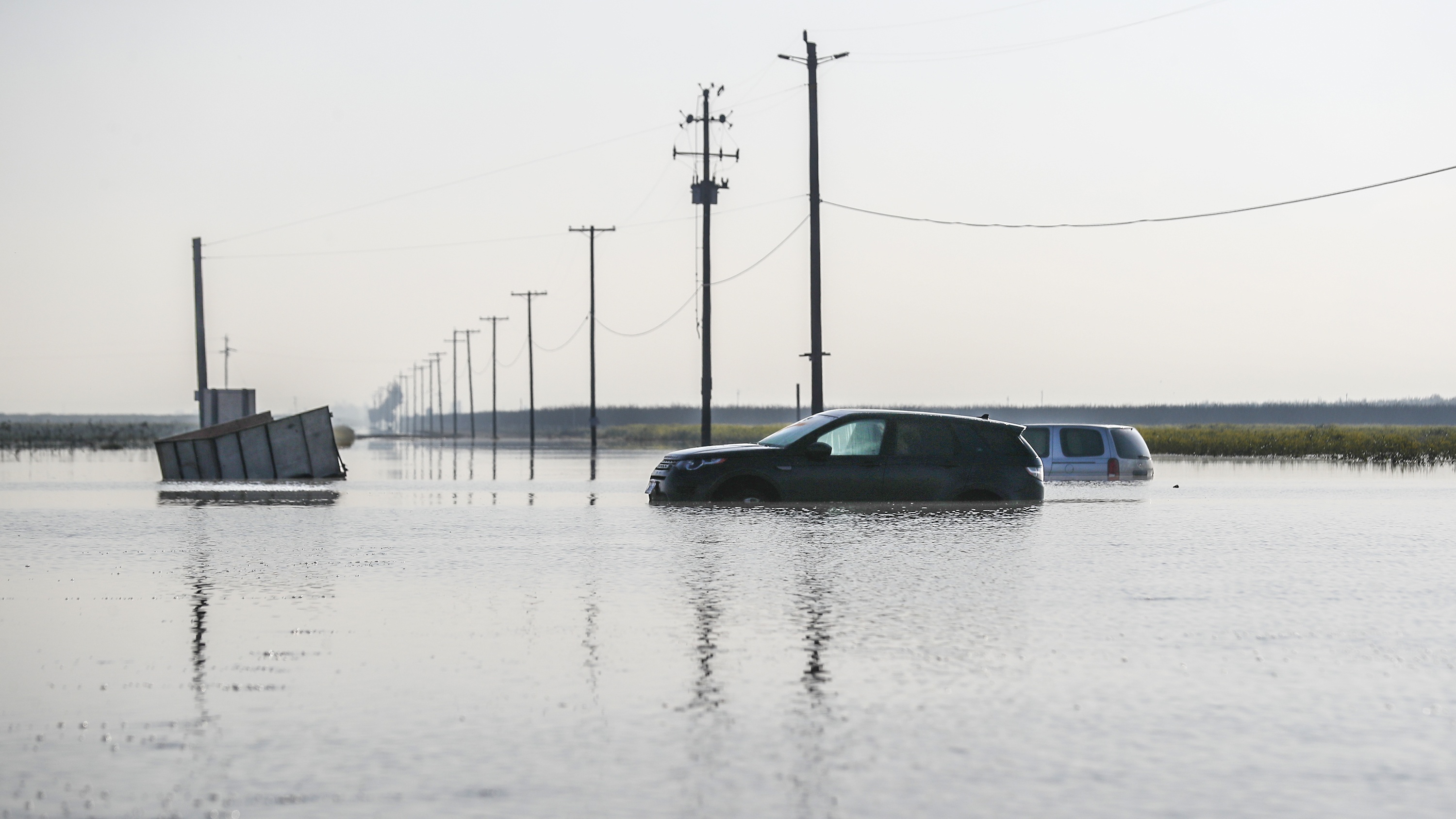
The US had its third wettest January on record this year, according to a National Oceanic and Atmospheric Administration report.
California was "battered by an onslaught of 31 atmospheric river storms in a matter of months", said the Los Angeles Times. The storms "dumped record-setting snow across the Sierra Nevada and Southern California mountain ranges, breached levees and flooded communities".
Warm winter in Europe
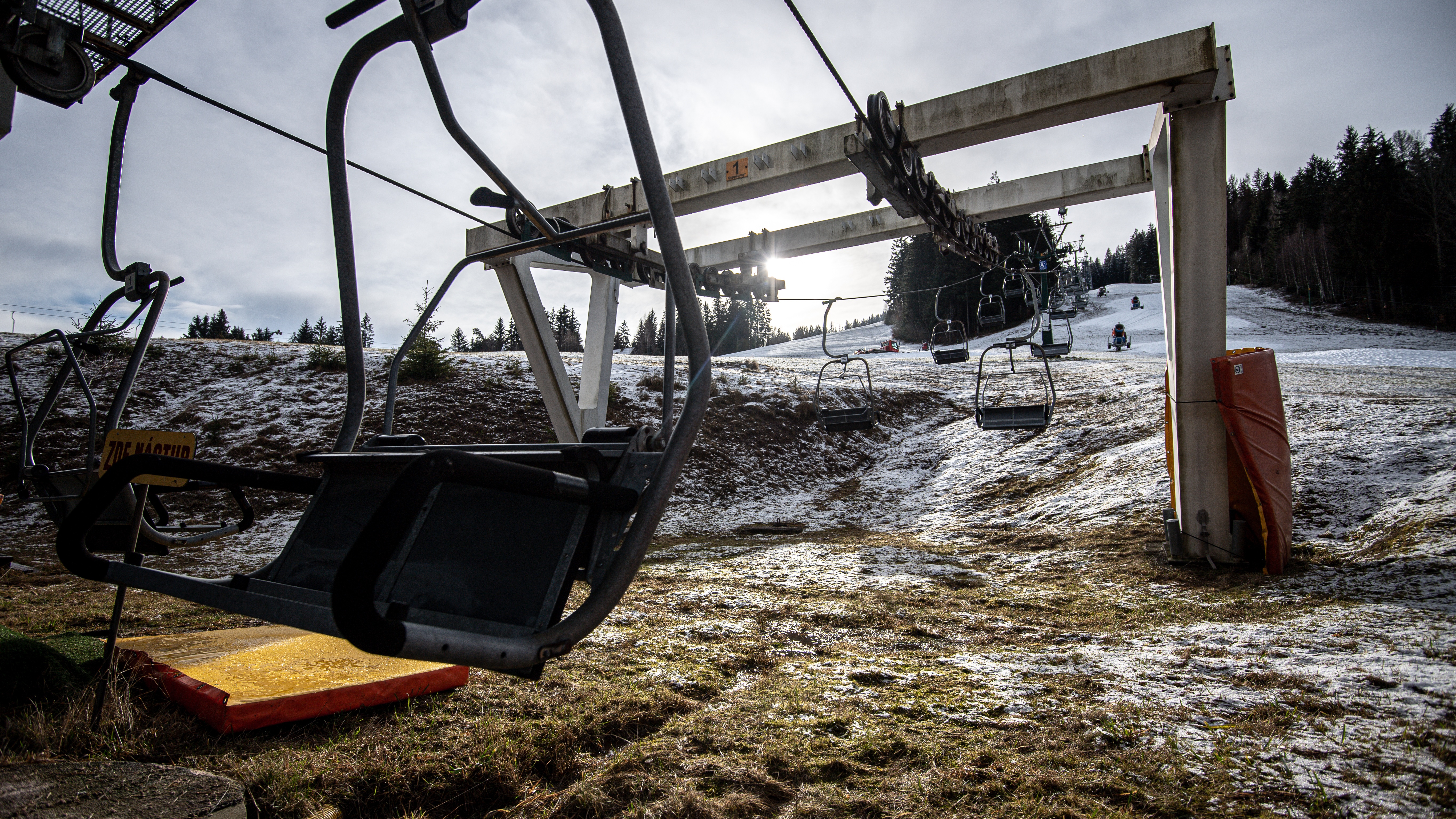
Europe experienced its second warmest winter to date this year, according to data gathered by Copernicus Climate Change Service. A strong winter heat dome "pounced" on the continent, said The Washington Post, causing many ski resorts to temporarily close due to low snowfall.
The "unusually mild" temperatures "offered some short-term relief to governments struggling with high gas prices", said the Evening Standard, but "posed risks to wildlife and agriculture".
Cyclone Freddy
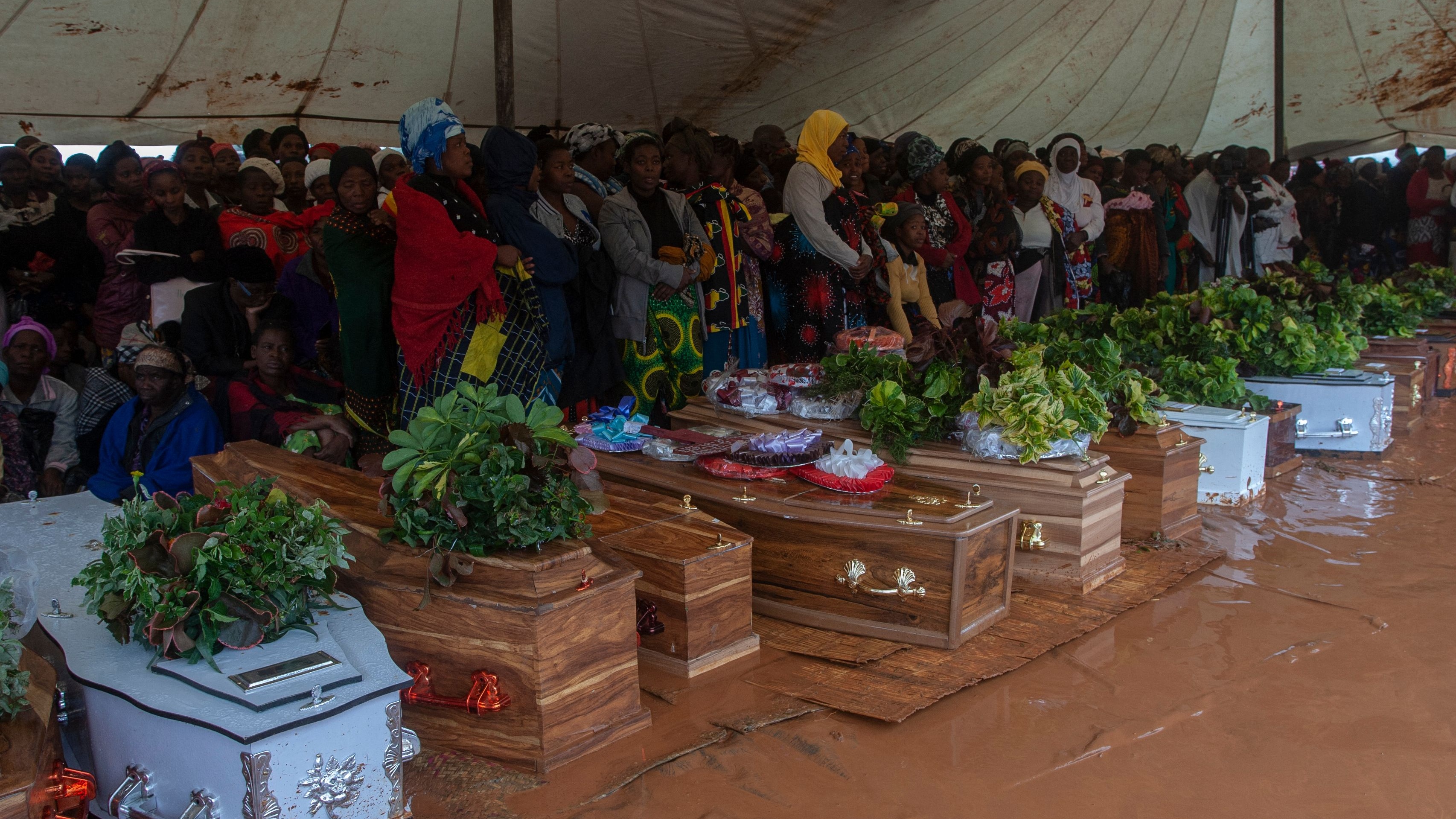
Cyclone Freddy made landfall in southern Africa in February "before circling back in March", said Reuters. It "left a trail of destruction in its wake after ripping through Malawi, Mozambique and Madagascar".
More than half a million people were displaced and more than two million affected by the storm, Malawi’s President Lazarus Chakwera said in April. The death toll, he said, had surpassed 1,000 by then.
The cyclone may prove to be "the most energetic and long-lasting storm ever recorded", said Space.com.
Floods and landslides in Brazil
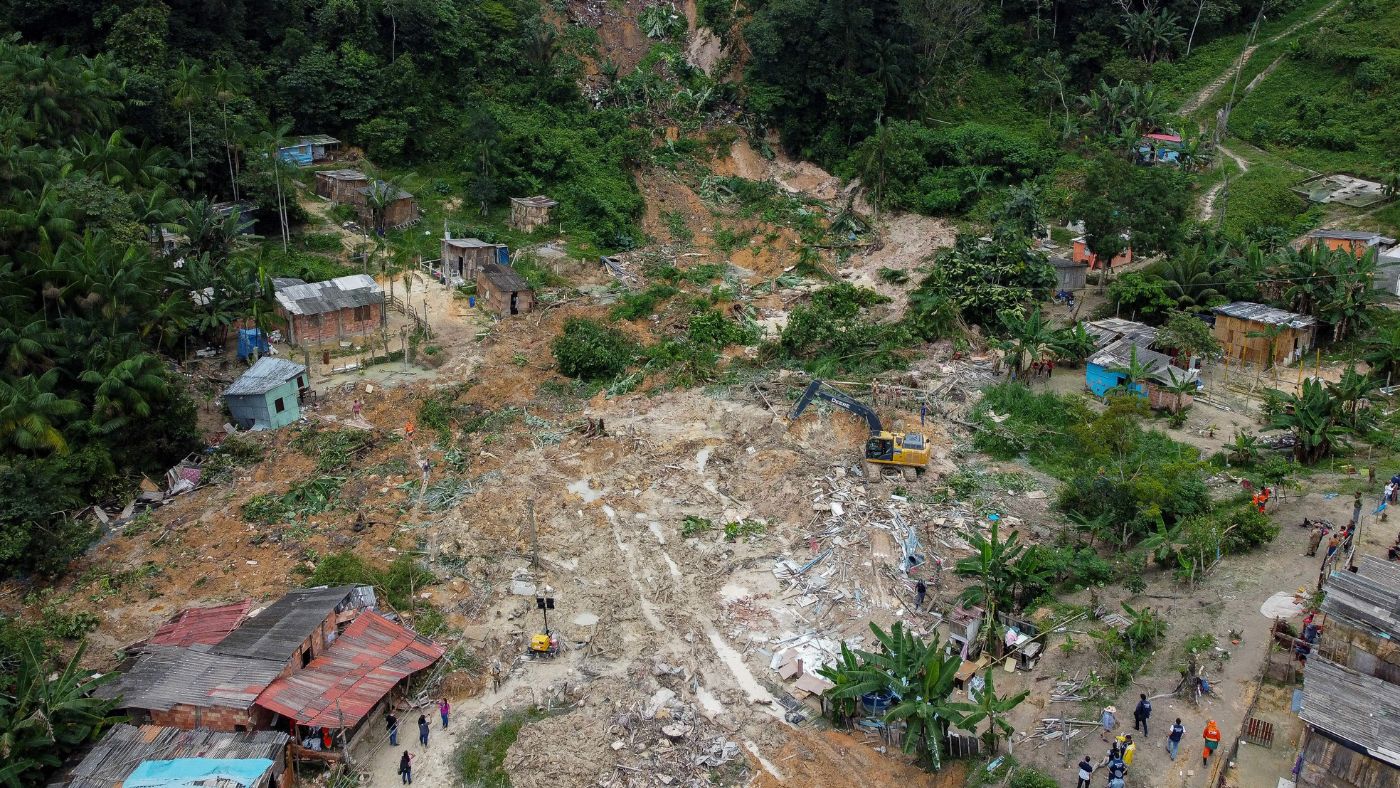
At least 65 people were killed by landslides in São Paulo in southeastern Brazil in February that were triggered by torrential rainfall.
"Parts of the state saw more than 680 millimeters (26 inches) in a single day," according to Nasa. The heavy rainfall saturated hillsides, "destabilising the soils and underlying bedrock", said Nasa landslide expert Robert Emberson.
The following month a further mudslide killed eight people in Manaus, after a downpour "drenched the region", said La Prensa Latina.
Monsoon in Malaysia
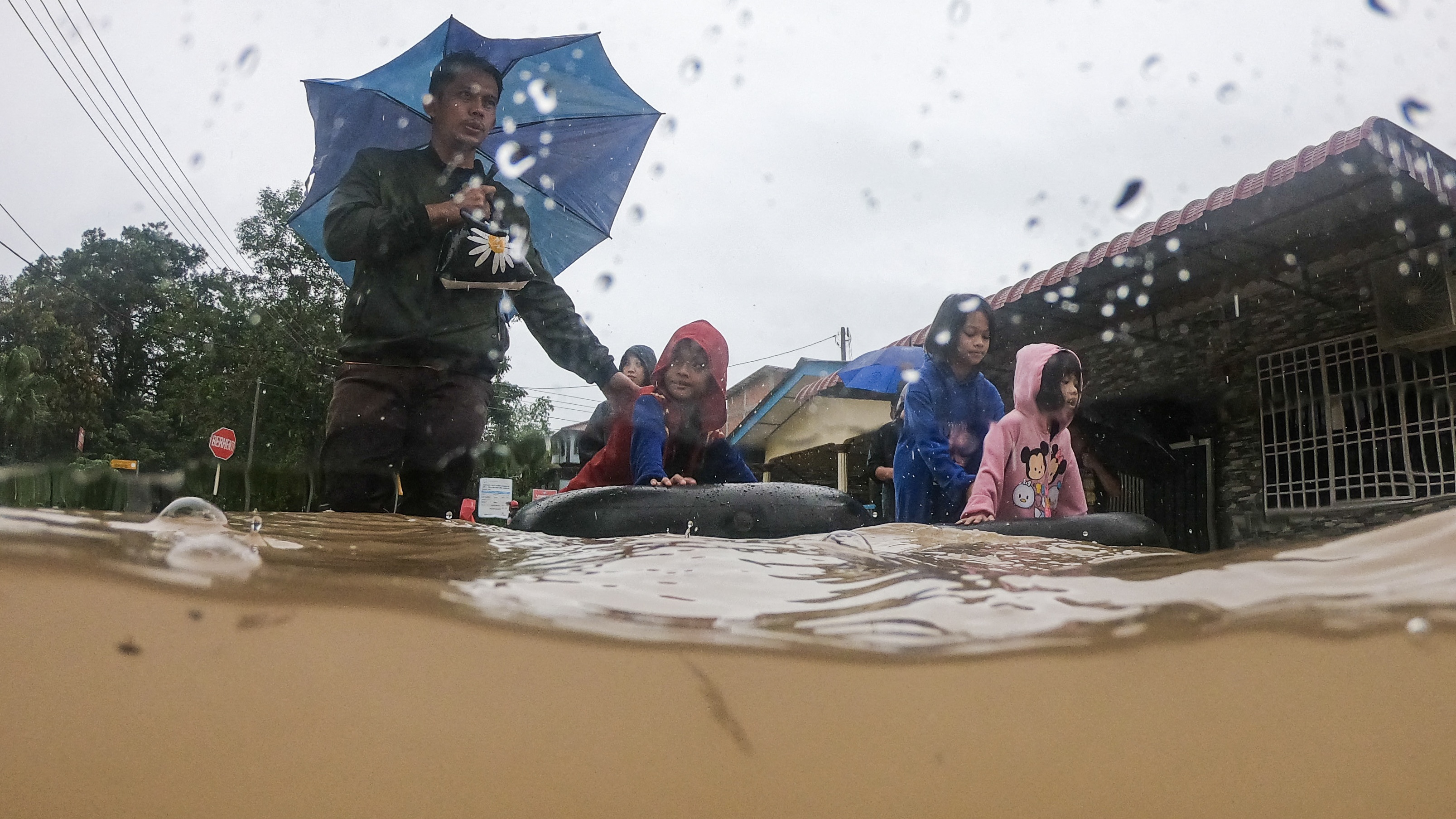
More than 40,000 residents were forced to flee their homes in southern Malaysia in March due to extreme flooding that claimed four lives.
Monsoon season usually falls between November and March in the region, but this year's rains lingered and flooding continued, said Hawaii Public Radio. Experts blamed deforestation, over-development and climate change for the unprecedented amount of rainfall.
Cyclone Mocha in Myanmar

The United Nations appealed for aid to help 1.6 million people in Myanmar after Cyclone Mocha made landfall on 14 May. "Hundreds of makeshift shelters" were torn apart and 90% of the western Rakhine state’s capital city Sittwe was "destroyed", said the BBC.
Coastal winds of up to 150mph wrought destruction, causing flooding and landslides in "an area that is home to hundreds of thousands already displaced by the protracted conflict in Myanmar, many of them the Rohingya minority of Rakhine state", said UN News.
Wildfires in Canada
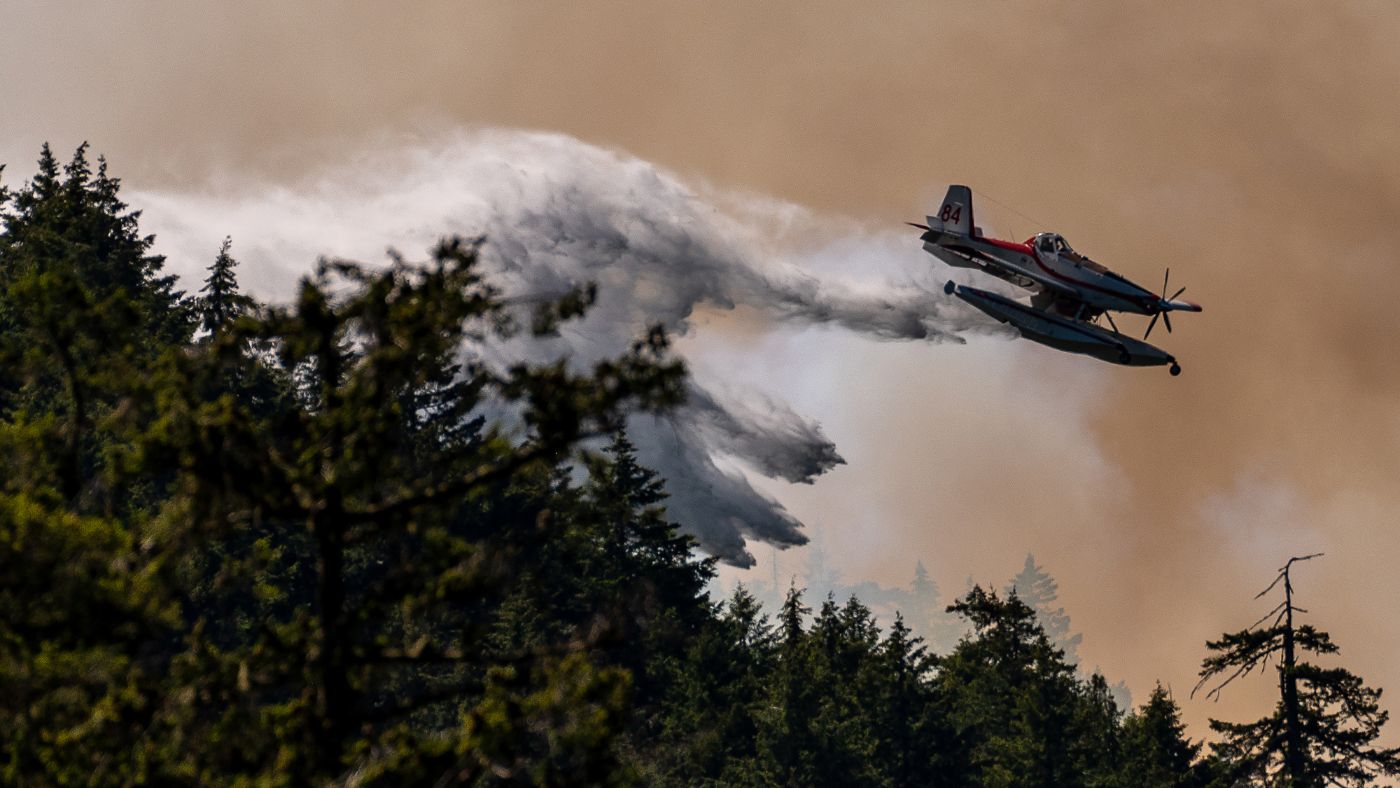
Canada has suffered its "worst wildfire season in recorded history" this year, said The Guardian. More than 5,000 blazes have scorched through 32 million acres of land since the start of the year, "almost seven times the average for the same period over previous years".
The conditions have been "taxing on wildfire crews", said The Washington Post. Six firefighters died while tackling blazes in British Columbia this summer.
South Korea floods
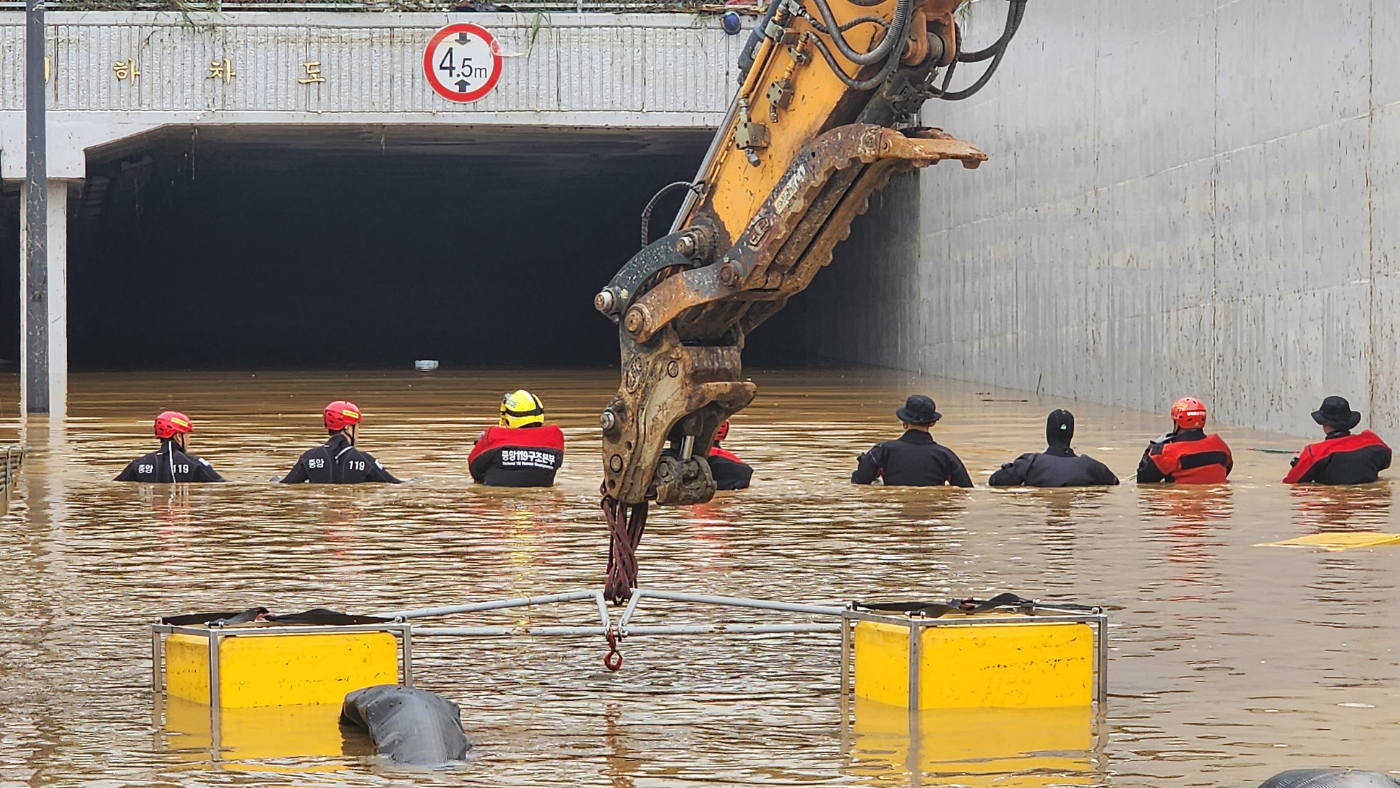
"Weeks of on-and-off torrential rain" killed at least 41 people in South Korea in July, VOA reported. "This year's monsoon is unlike any seen before" and the season is becoming "increasingly unpredictable".
The extreme weather "left thousands picking up the pieces from storm damage" as President Yoon Suk-yeol told officials to "spare no effort" in relief and rebuilding work.
Heatwave in the US
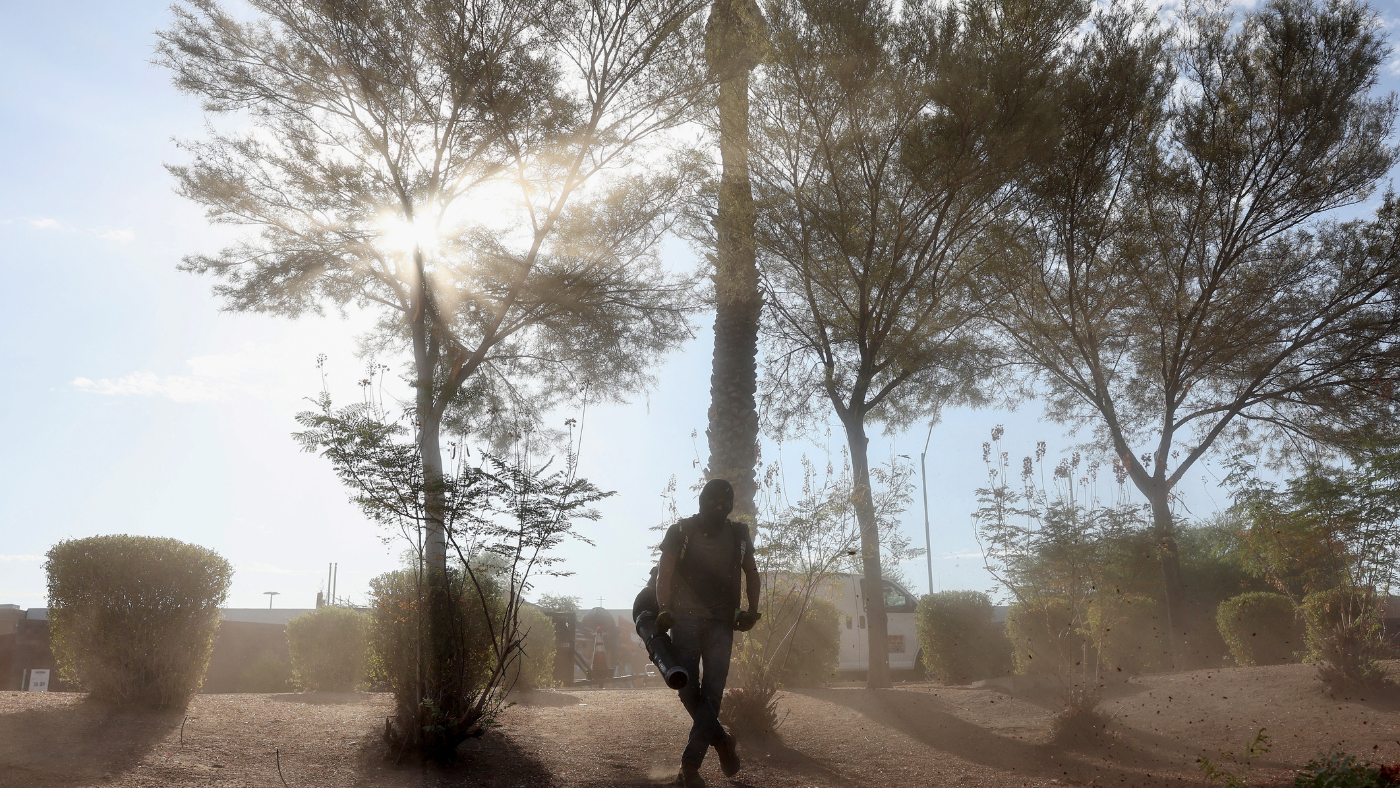
As "historic heat" levels hit Texas, New Mexico and Arizona in June and July, Phoenix, the capital of Arizona, "sweltered more intensely than most", said The Guardian, as temperatures in the city topped 43C for 31 consecutive days.
Hospitals saw "a rise in first-, second-, and third-degree contact burns, some fatal, amid extreme heat conditions". Arizona's most highly populated county, Maricopa, reported 25 deaths in relation to heat this year to 21 July, "and hundreds more are under investigation".
Europe's heatwave
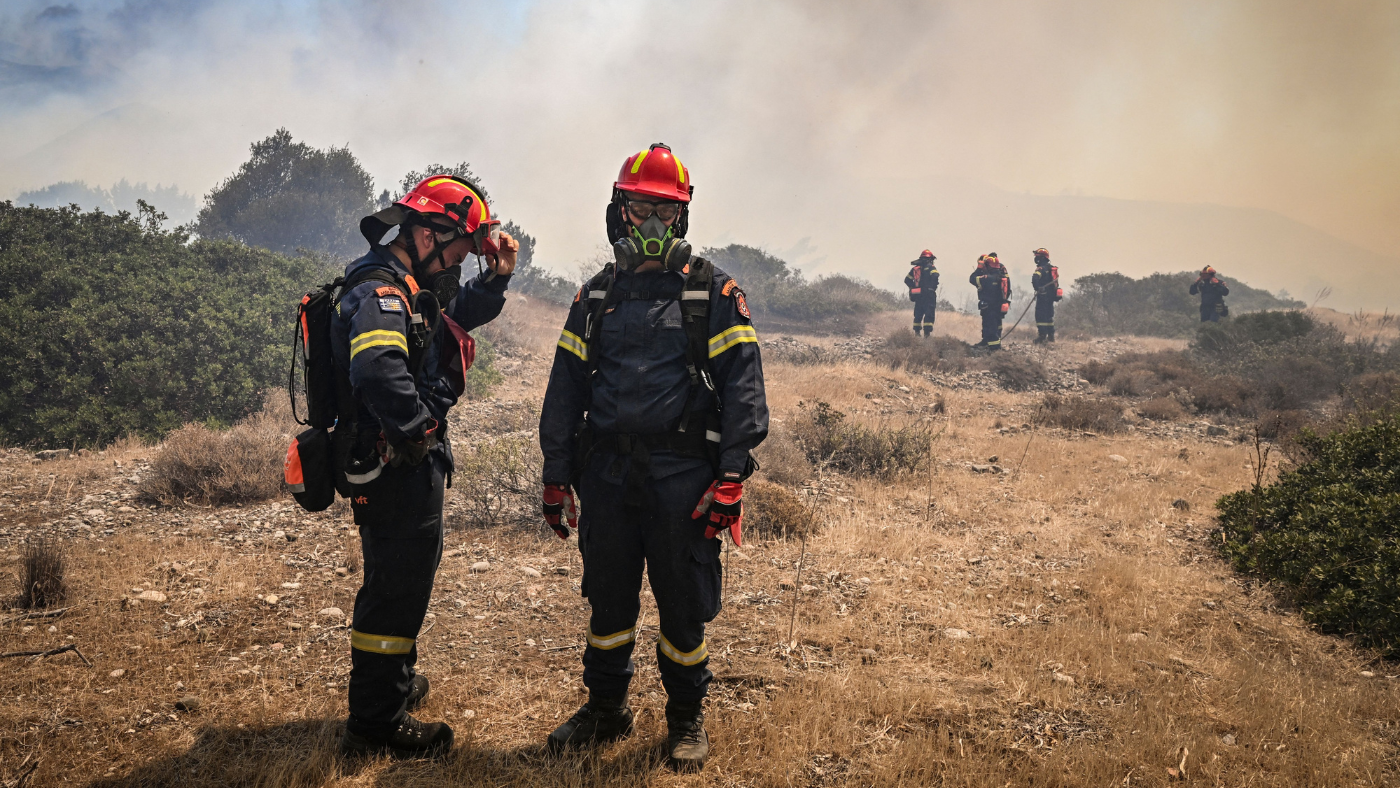
Scorching temperatures have impacted countries across Europe this summer too, with many experiencing wildfires.
Thousands of holidaymakers and residents were evacuated from the Greek island of Rhodes in July, which is now in a six-month state of emergency, after blazes "threatened resorts", said The Times. Greece has battled its "most intense wildfires in two decades of modern satellite records".
Fires have also burned across Italy, Spain, Portugal, Turkey, Croatia and France. As the UK's weather took "a turn for the worse" in August, tourists were "flocking to Britain to enjoy the cooler, wetter climate", said Sky News.
Floods in China
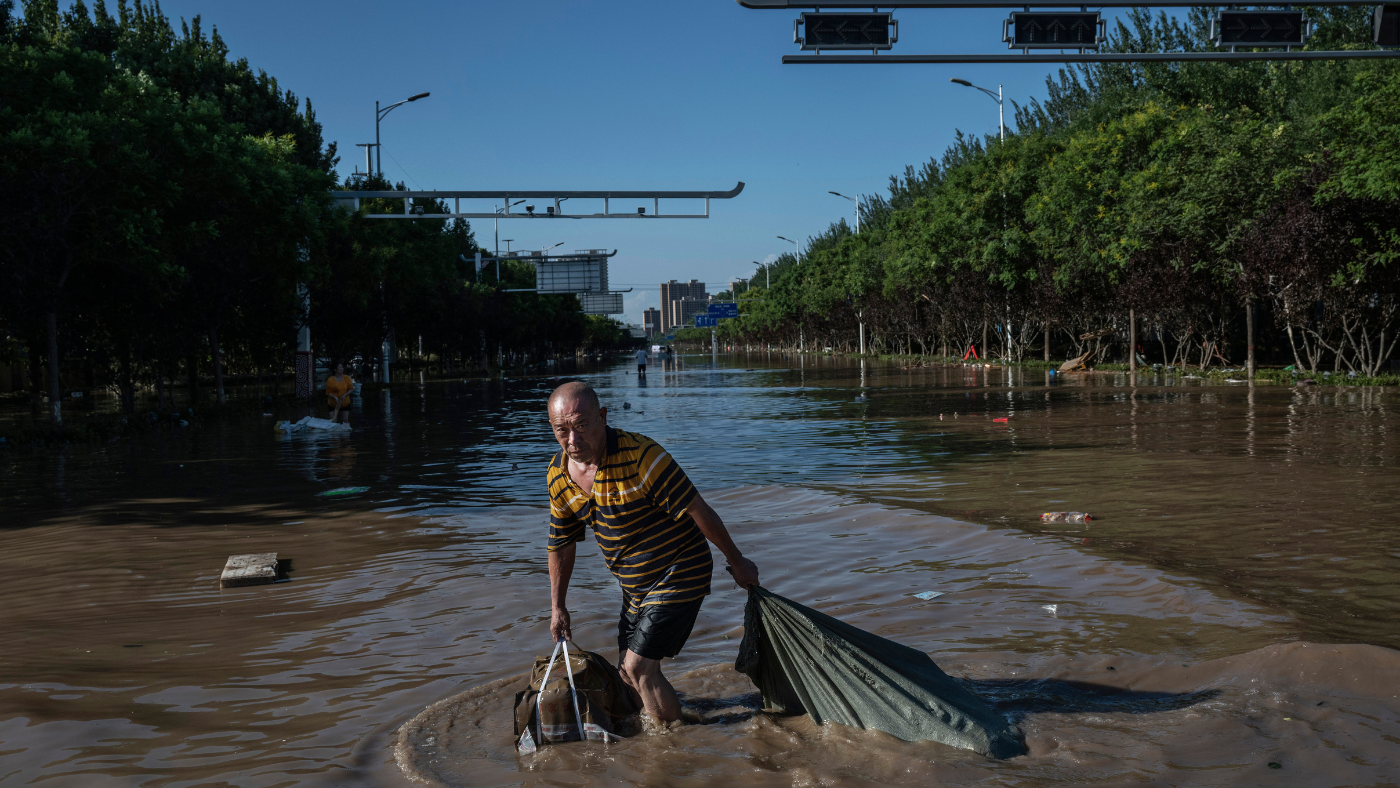
Typhoon Doksuri caused "exceptional rainfall" in the Hai River basin in northern China, which covers Beijing, Hebei Province and Tianjin port, CNA reported. The region experienced "the worst floods since 1963 despite massive mitigation efforts" in August.
"China's Soviet-era urban drainage systems… leave cities vulnerable to waterlogging during heavy rain,” said CNA. Zhuozhou in Hebei was “unprepared", with many residents saying "they were not informed about the severity or the situation or told to evacuate" before the rains began. Authorities say 33 people have died and tens of thousands have been displaced.
Fires in Hawaii
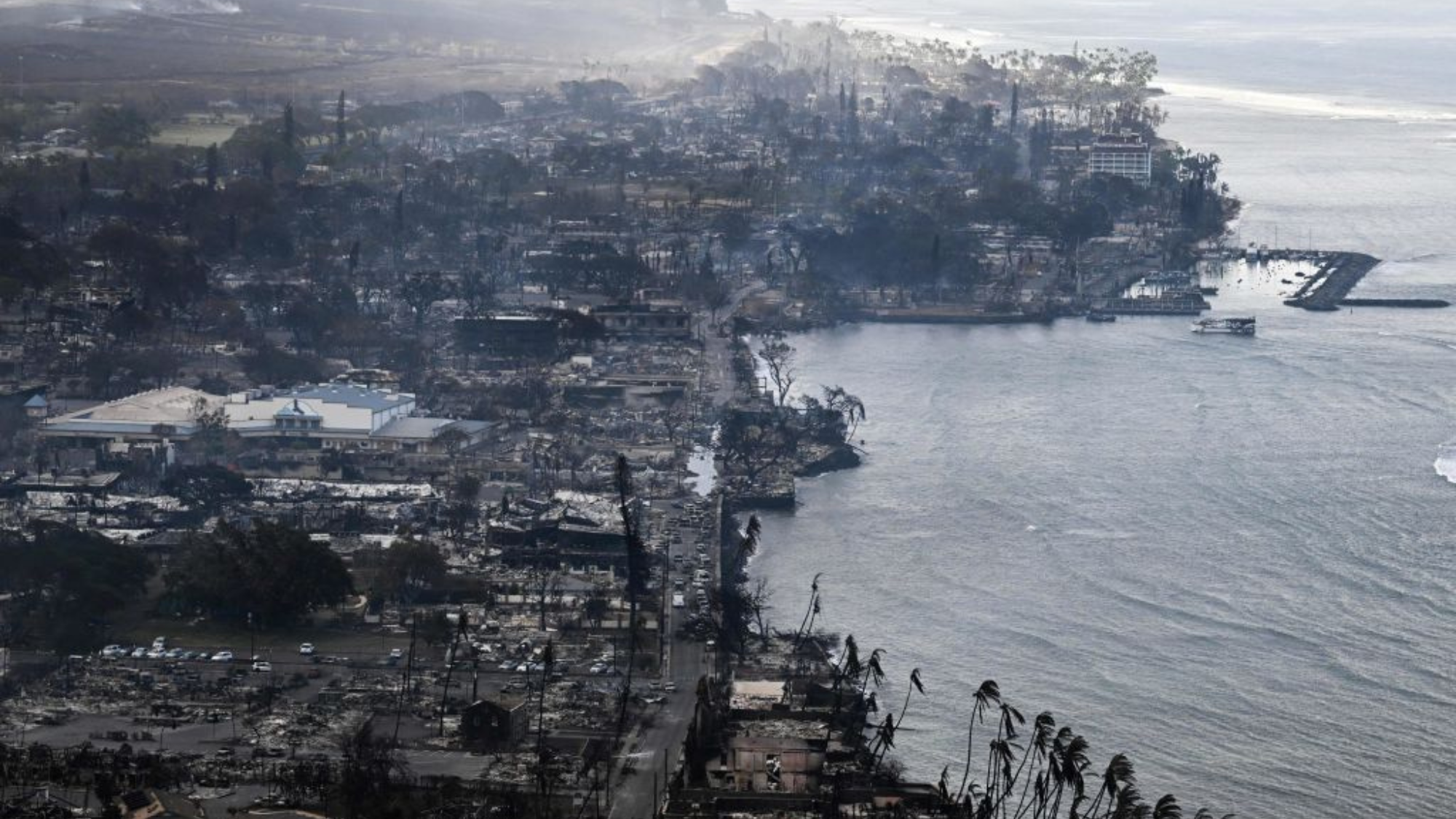
At least 97 people are known to have died as blazes burnt across Maui in August
A "devastating inferno" charged across Maui on 8 August, said The Associated Press. A "wall of flame" destroyed buildings and homes and killed at least 97 people. Officials have warned it will take years for the island to recover.
The Hawaiian Electric Co has acknowledged that fallen power lines started the fire. Officials are now investigating whether the utility company had been negligent in its activities, including in keeping its infrastructure clear of flammable, overgrown foliage.
A lack of planning and years of underfunding were reported to have left the island at risk of a fire threat.
Cyclone in Brazil
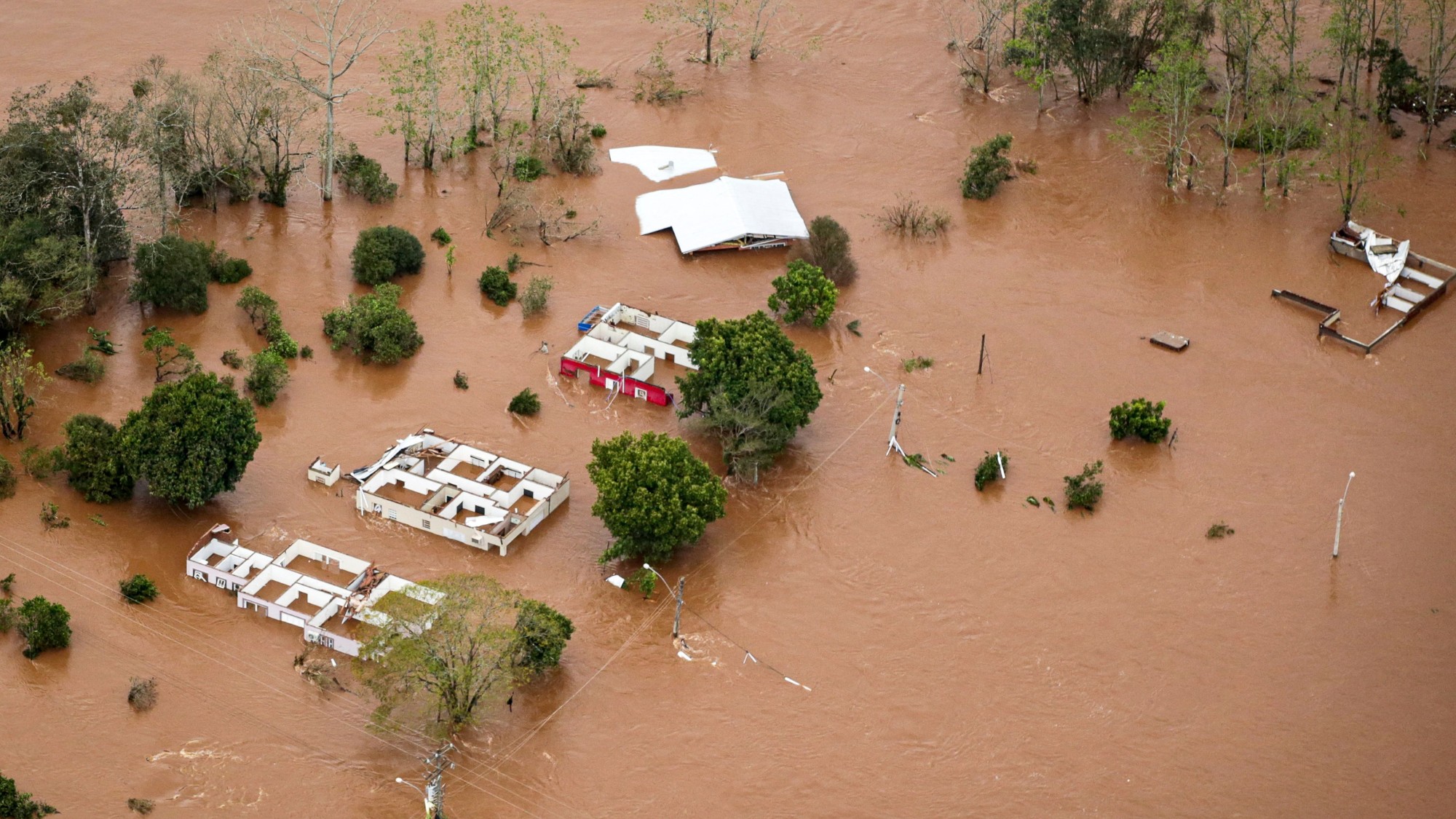
Homes were destroyed by heavy rainfall and flooding across the state of Rio Grande do Sul in September
In what Rio Grande do Sul's governor Eduardo Leite described as the state's worst weather disaster on record, an extratropical cyclone killed at least 27 people in southern Brazil in September.
Officials said that almost 30cm of rain fell on the state in less than 24 hours, causing flooding and subsequent landslides. Rescue teams used helicopters to reach regions that were no longer reachable by road due to the floods, as the "storm battered around 60 cities" in the region, said Sky News.
Floods in Libya
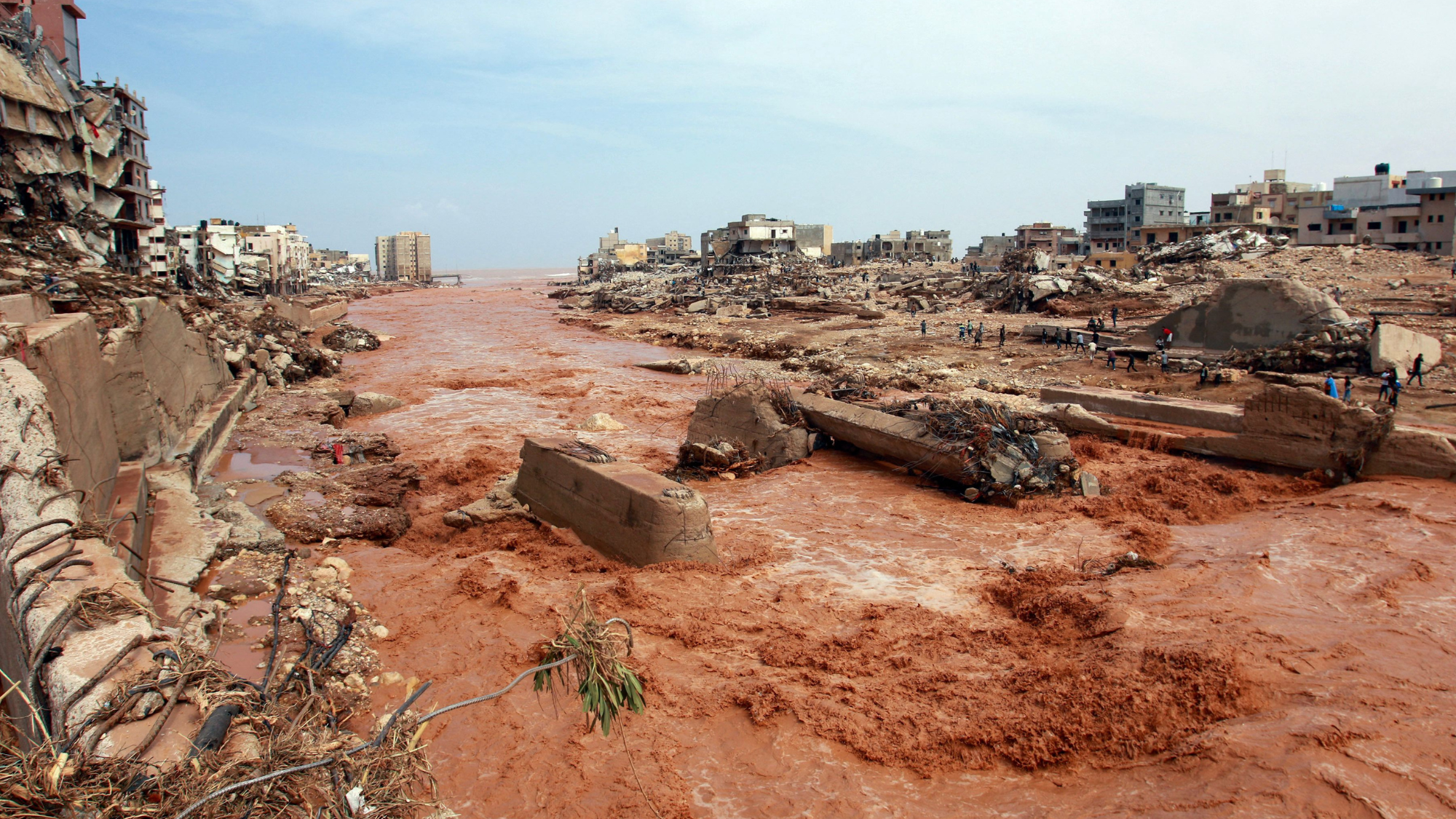
Flooding in Libya has killed more than 11,000 people in the country's north-eastern region
Derna was "practically flattened" in September as "Storm Daniel unleashed its wrath on a city that was mostly fast asleep", said Al Jazeera.
Heavy rainfall led to the collapse of two dams, which caused extensive flash flooding and washed away entire homes and neighbourhoods. Thousands of people remain missing and displaced, and the death toll has passed 11,000 people.
Julia O'Driscoll is the engagement editor. She covers UK and world news, as well as writing lifestyle and travel features. She regularly appears on “The Week Unwrapped” podcast, and hosted The Week's short-form documentary podcast, “The Overview”. Julia was previously the content and social media editor at sustainability consultancy Eco-Age, where she interviewed prominent voices in sustainable fashion and climate movements. She has a master's in liberal arts from Bristol University, and spent a year studying at Charles University in Prague.
-
 Why is the Trump administration talking about ‘Western civilization’?
Why is the Trump administration talking about ‘Western civilization’?Talking Points Rubio says Europe, US bonded by religion and ancestry
-
 Quentin Deranque: a student’s death energizes the French far right
Quentin Deranque: a student’s death energizes the French far rightIN THE SPOTLIGHT Reactions to the violent killing of an ultra-conservative activist offer a glimpse at the culture wars roiling France ahead of next year’s elections.
-
 Trump touts pledges at 1st Board of Peace meeting
Trump touts pledges at 1st Board of Peace meetingSpeed Read At the inaugural meeting, the president announced nine countries have agreed to pledge a combined $7 billion for a Gaza relief package
-
 Coober Pedy: inside the Australian town where people live underground
Coober Pedy: inside the Australian town where people live undergroundIn Pictures Could subterranean homes be an answer to rising global temperatures and increasingly inhospitable conditions?
-
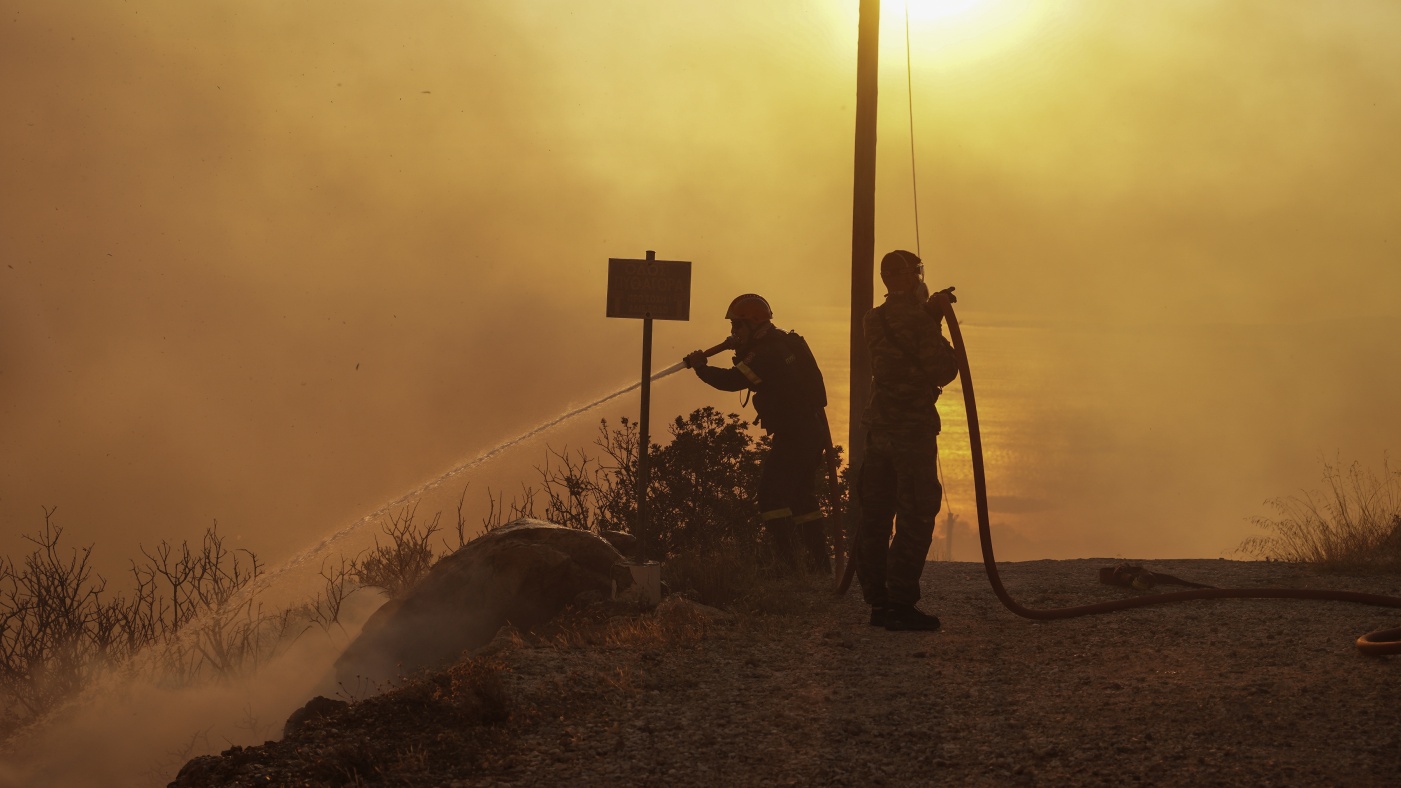 Temperatures intensify in Europe: the heatwave in pictures
Temperatures intensify in Europe: the heatwave in picturesIn Pictures Highs of 40C-plus and devastating wildfires in southern Europe are, in part, due to the Charon anticyclone
-
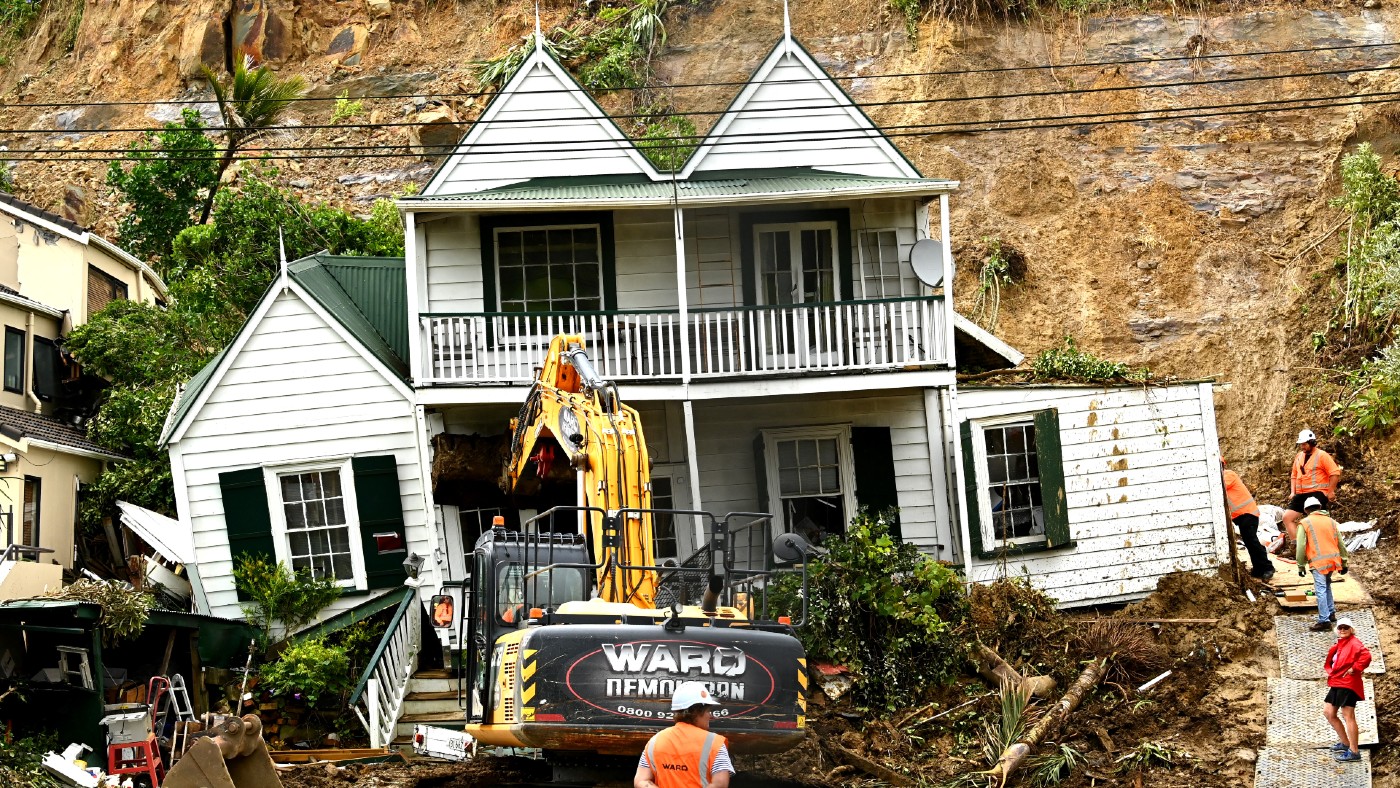 Flash flooding and landslides hit Auckland after torrential rain
Flash flooding and landslides hit Auckland after torrential rainIn Pictures Large parts of New Zealand’s North Island remain under a state of emergency as thousands go without power or water
-
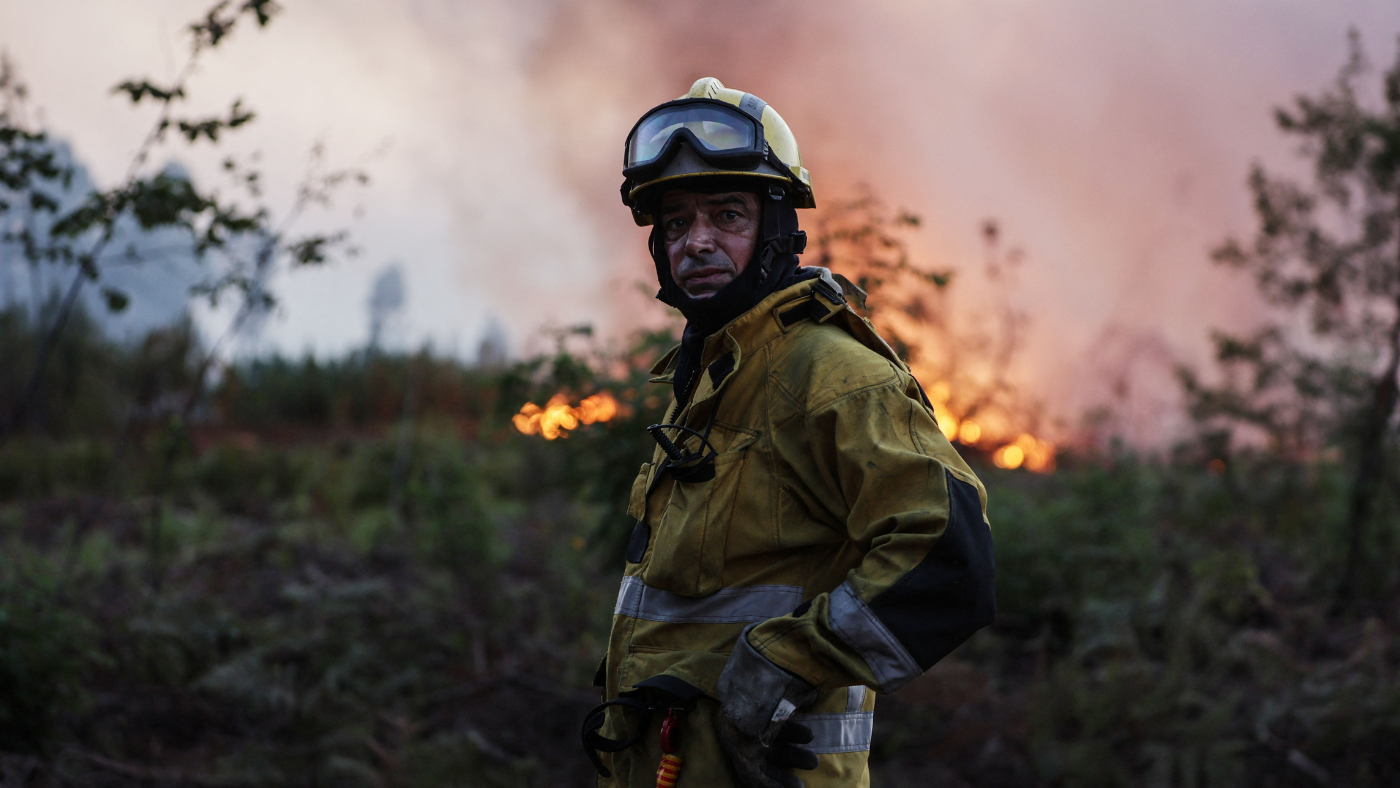 Europe battles heatwave wildfires
Europe battles heatwave wildfiresIn Pictures Thousands evacuated from their homes as heat-related death toll rises
-
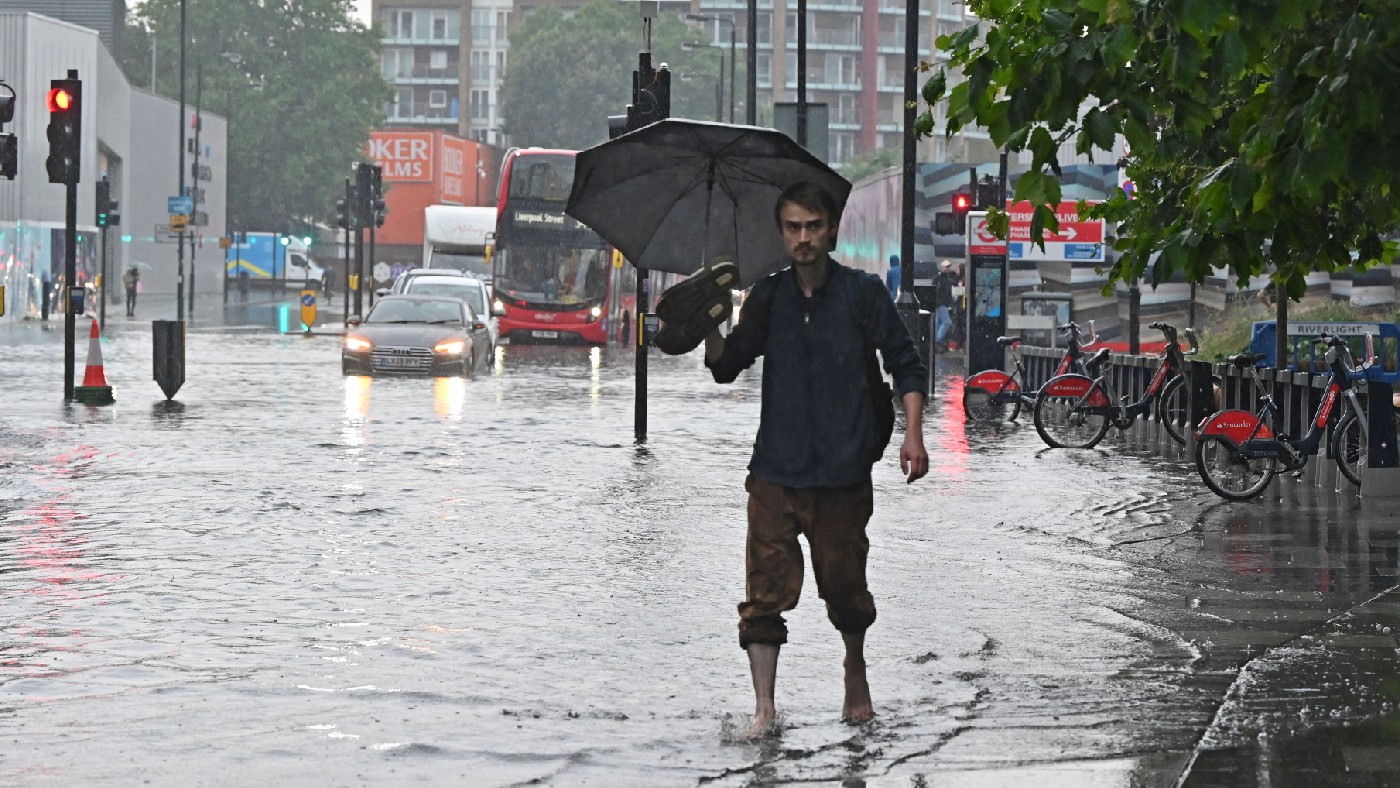 Wildest UK weather of 2021 - in pictures
Wildest UK weather of 2021 - in picturesIn Pictures Country braced for high winds and heavy rain as Storm Barra hits less than two weeks after Storm Arwen caused chaos